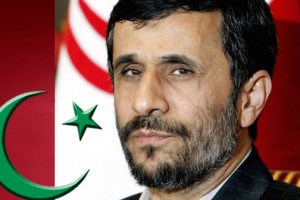History, in her disposition toward intellectually gifted peoples and nations, appears as fickle as the gods of ancient times were wont to be of their most devout revelers; the more those peoples and nations excelled the less they were shielded from endless tribulations, great catastrophes, and devastating tragedies. Like most of the nation-states of Europe and Asia, present-day Iran had a glorious history, yet unlike them, it has been torn since 1979 between revolutionary adventurism and reactionary self-preservation.
The fatal contradiction in Ayatollah Khomeini’s doctrine of the “guardianship of the jurist” (velayat-e faqih) is that, by definition, it contains the political seeds of its own destruction. On the one hand, the imperative that God (Allah) is the absolute sovereign, i.e. the only legitimate authority, elevates earthly politics to the domain of the divine. Conversely, any implementation of God’s design by mere mortals is illegitimate because He shall never relinquish absolute authority. Thus, Khomeini’s new political system has been, from its inception, in war with both God and the notion of popular sovereignty. The result is a situation bearing the stamp of these negations. As God’s sovereignty is indivisible, and as Khomeini derived his absolute rule from God’s indivisible authority, the “Islamic Republic of Iran” is a hybrid, neither divine nor democratic. Every time the government attempts to demonstrate its popularity, the specter of Westernization in the form of democracy and secularization threatens to destroy its tenuous hold on power. By the same token, attempts at the reconstitution of God’s perfect worldly order would rob the government not only of its future, but also of its ties to Iran’s and the Muslim World’s real past and present. In this manner, condemned to hover between religious authoritarianism and totalitarian despotism, politics becomes an absolute enigma.
Iran’s domestic and international political problems started immediately after Khomeini began to turn his religious-nationalist rhetoric into practice. Oscillating between two myths, his personal infallibility and Shia-Iran’s global destiny, he succeeded to plunge his country into international isolation and economic ruin. Following the protracted war with Iraq, Khomeini’s successors, Supreme Leader, Ayatollah Ali Khamenei, and the three presidents, Ali Akhbar Hashemi Rafsanjani, Mohammad Khatami, and Mahmud Ahmadinejad, have proved that legitimacy cannot reside in illogical theocentrism and contradictory ideological reasoning. The implications of such an unreal and even mendacious totalitarianism are lack of political stability and economic prosperity. Brutal oppression, unhinged corruption, staggering unemployment among young people that comprise two-thirds of the population, and growing hopelessness over the future, brought to the fore deep bitterness and even hatred toward the regime.
Internationally, Iran’s policy of “permanent revolution” is in ruins. Initially, rather than confronting its Sunni-Arab antagonists one by one, Tehran launched an all out assault on all of them at once. The specter of an aggressive and belligerent Iran attempting to revive its imperial past, mobilized Sunni opposition throughout the Middle East, North Africa and Asia. As a result, neither Iran’s call for a pan-Islamic alliance against the Great and the Little Satan, i.e. the United States and Israel, nor its quest to establish a Shia arc ranging from Iran to Lebanon, has been crowned with lasting success. Iraq is on the verge of disintegration. Syria is in the throats of a bloody civil war that will surely culminate in the massacre of the ruling Alawite sect. In Lebanon, Hetzbollah is becoming increasingly isolated both politically and militarily. Iran’s relations with Saudi Arabia, the United Arab Emirates and the rest of the GCC countries are unambiguously hostile. Attempts at courting the Muslim Brotherhood in Egypt are floundering over the conflicting millennial visions of pure faith and leadership. Russia lacks political, economic, and military resources to play a significant role in Syria. Neither is the European Union in the position to be a force in the region. China will not risk alienating nine-tenths of the world’s Muslims. Post-Chavez Venezuela is mired in a protracted political war that lends the Maduro presidency a very high degree of uncertainty and instability.
Iran’s nuclear ambitions hang heavy over the region. Understandably, it influences American foreign policy in a negative way too. The seemingly uncompromising and relentless pursuit of the so-called Shia-bomb have confronted the last three presidents, including the current one, with a dilemma, either accept or confront it. However, the vacillating policy of rejection, coupled with alternating application of the stick-and-carrot measures, have given rise to the conviction that American rhetoric is only signals its lack of resolve, or even fatal political and military weakness vis-à-vis Iran. The perception that there are two contradictory principles guiding American policy is a dangerous one, and as such must be corrected. Similarly, the government of Iran must decide whether it wants to be a part of a lasting regional peace, or desires to continue a policy that is defined by religious, ethnic, and tribal favoritism.
The Islamic World is again in a crisis. The powers that honestly desire peace in the Middle East are the United States, Israel, the European Union, Jordan, and the GCC countries. Iran and Turkey are chasing with differing intensity the phantom of imperial dreams. To obtain peace and stability, the United States must develop a strategy that is based on four fundamental principles: non-intervention, the inviolability of national boundaries, the rule of law, and the right to opposition. With the uncertainties surrounding the upcoming presidential elections in Iran, and with an American president who is prone to sacrifice national interests to his personal aggrandizement, the Republicans in Congress must develop, as soon as possible, a foreign policy alternative to Barack Obama’s non-policy of inertia and incompetence. For the stakes are high. The viability of American leadership and the future progress of all the countries in the region are on the balance.
